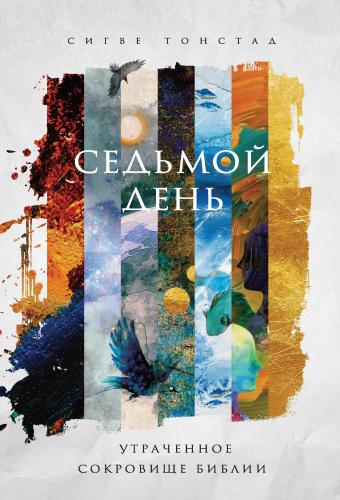220
C.A.Keller, Das Wort OTH als Offenbarungszeichen Gottes (Basel: Buchdruckerei E.Haenen, 1946).
221
TDOT I:169.
222
Keller, Das Wort OTH, 67.
223
Там же, с. 11.
224
TDOT I:171.
225
Keller, Das Wort OTH, 64.
226
John I. Durham, Exodus (WBC; Waco: Word Books, 1987), 412–413.
227
Keller, Das Wort OTH, 64.
228
История поднятия флага над Иводзимой ярко пересказана у Джеймса Брэдли: James Bradley, Flags of Our Fathers (New York: Bantam Books, 2000).
229
Когда Майкла Хеймана, руководителя Смитсоновского института, спросили, какой из более чем 140 миллионов экспонатов данного учреждения самый ценный, он не задумываясь ответил: «Из всех вопросов, которые мне задают, этот – самый простой: наше величайшее сокровище – это, конечно же, усыпанный звездами американский флаг»; ср.: Leepson, Flag, 59.
230
Keller, Das Wort OTH, 64.
231
Neschel, The Sabbath, 8, 16.
232
Современный взгляд на восприятие времени, предложенный одним известным психологом, также находит рекомендацию «нюхать розы» поверхностной и неудовлетворительной; ср.: Herbert Rappaport, Marking Time (New York: Simon&Schuster, 1990).
233
Pedersen, Israel, I:308.
234
Childs, Exodus, 541.
235
Pedersen, Israel, II:290, курсив мой.
236
Pinchas Peli, The Jewish Sabbath: A Renewed Encounter (New York: Schocken Books, 1988), 94.
237
Там же, с. 109.
238
Durham, Exodus, 413.
239
Pedersen, Israel, I:169.
240
Terence E.Fretheim, Exodus (Interpretation; Louisville: John Knox Press, 1991), 230.
241
Keller, Das Wort OTH, 141.
242
Peli, The Jewish Sabbath, 90.
243
Pedersen, Israel, II:290.
244
Geraldine Smyth, “Sabbath and Jubilee“ in The Jubilee Challenge: Utopia or Possibility? ed. Hans Ucko (Geneva: WCC Publications, 1997), 64.
245
Jean Louis Ska, “Biblical Law and the Origins of Democracy,” in The Ten Commandments: The Reciprocity of Faithfulness, ed. William P.Brown (Louisville: Westminster John Knox Press, 2004), 152.
246
Niels-Erik Andreasen, “Festival and Freedom,” Interpretation 28 (1974):281–297.
247
Ср.: Rendtorff, The Canonical Hebrew Bible, 464–465.
248
Андреасен (“Festival and Freedom,” 294) называет субботний год и юбилей установлениями, «родственными субботе».
249
Raphael Jospe, “Sabbath, Sabbatical and Jubilee: Jewish Ethical Perspectives,” in The Jubilee Challenge,78.
250
Norman C.Habel, The Land Is Mine (Minneapolis: Fortress Press, 1995), 102–103.
251
Хабел (The Land is Mine, 104) называет юбилейный год «экономической амнистией».
252
Erhard S.Gerstenberger, Leviticus, trans. Douglas W.Stott (OTL; Louisville: Westminster John Knox Press, 1996), 374.
253
Там же, с. 377.
254
Там же, с. 374.
255
Hans Ucko, “The Jubilee as Challenge,” in The Jubilee Challenge, 2.
256
Jacob Milgrom, “Leviticus 25 and Some Postulates of the Jubilee,” in The Jubilee Challenge, 32; ср. также: Jacob Milgrom, Leviticus: A New Translation with Introduction and Commentary, vol. 3 (AB; New York: Doubleday), 2145–2212.
257
Robert Gnuse, “Jubilee Legislation in Leviticus: Israel’s Vision of Social Reform,” Biblical Theology Bulletin 15 (1985):47.
258
John H. Hays, The Eighteen-Century Prophet Amos: His Times&His Preaching (Nashville: Abingdon Press, 1988), 208; Gary V.Smith, Amos (Grand Rapids: Zondervan, 1989), 253; Shalom M.Paul,
